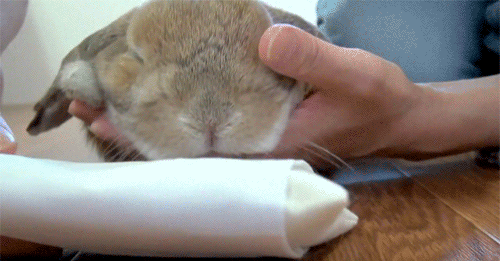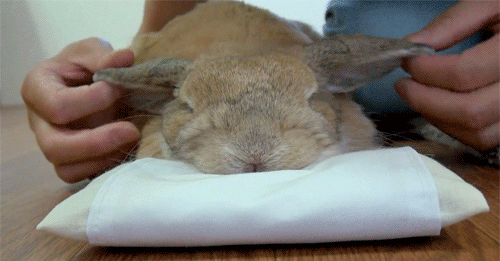Whixy - WHIXY





More Posts from Whixy and Others

Boku no hero Academia


It was hard to believe that this house had once been bustling with activity and life, the now decaying walls once having been littered with memories of the past. Sitting in what use to be a glass sun room, you peered around silently at the decay, nature having long since begun to overtake what ever it could, forcing it’s way between glass and rusted metal.
Seeing the evidence of the time that had passed, only made your condition even clearer, a heavy weight forming within your chest at the reminder. Those who had known you had long since passed on, though you couldn’t help but wonder just what they would think if they could see you now.
Nothing had changed about you since that day so long ago, your features remaining forever frozen at the age that the accident had happened. You wondered how everyone had reacted, how they must have felt after your apparent death.
There hadn’t even been a body to bury, though enough blood had been spilt that your death would have been unquestioned.
Despite the years that had passed, you still didn’t know what had made you like this, nor did anyone else. You’d met many beings since that day, demons, witches, even a couple of reapers. Though every single one had somehow been able to sense your unnatural state, none had been able to understand it, nor offer you any answers to the things you didn’t know.
It was frustrating, but after all this time you had finally decided to just let it be.
It was agonising knowing that those you loved were long gone, that anyone you chose to let into your life from now on would also one day leave you. But worst of all, was knowing that you would never get the chance to say goodbye to the one who meant the most to you.
It was why you had finally come back here after all this time, some part of you unable to let go until you finally got to say goodbye, even if only to a silent grave.
Unfortunately, until you could locate where that was, you couldn’t really do much about it. It didn’t help that they had never even told you their real name, even after all the years the two of you had spent drawing closer to each other. You hoped they had ended up having a happy life at least. A life filled with love, even if you couldn’t be there to give it to them yourself.
Perhaps visiting that old funeral parlour of theirs, would grant you some answers….. if it was even still around now that they had passed.
Bkdk doodle 👀🧡💚





Bakugou: anything that comes out of your mouth is fucking stupid
Todoroki: All Might
Bakugou: [loud gasp]
[later]
Todoroki: [crying into his All Might pillow] i’m so sorry All Might, i didn’t mean it, he was just being so obnoxious
On reptile and invertebrate cognition...
Something that bothers me when people talk about the cognitive limitations of certain animals is that vague, human-centric words get thrown around and treated like Indisputable Science. When really, the definitions attached to those words are really important.
Example 1: “Reptiles don’t feel happiness”
Well, what exactly do you mean by “happiness”? Do you mean the exact combination of cognitive and emotional sensation that constitutes human happiness? Reptiles certainly don’t experience human happiness, but neither do canines or birds (which don’t even experience mammalian happiness), and we don’t usually go around saying that dogs or parrots don’t feel happiness. We understand that dogs and parrots experience a positive emotional state that is similar to human happiness.
Reptiles aren’t as cognitively or emotionally complex as dogs, parrots, or humans, but they still experience pleasure and can form positive associations. Should we call that happiness? Is a positive emotional state, characterized by high levels of pleasure, an absence of pain, and all current needs being adequately met not a primitive version of what we call happiness?
Same with “reptiles don’t feel emotions”. Well, no, they don’t experience anything approaching the intensity of human emotions, as they don’t have big, thinky cortexes to attach meaning to the emotional reactions of their limbic system. But recent studies have shown that reptiles do have a primitive version of the limbic system and even the neocortex (that whole “reptile brain, mammal brain, human brain” theory has been all disproved by recent science).
At the very least reptiles experience the primitive emotions of pleasure and fear. There are even reptiles that mate for life and form social bonds (even to the point of caring for offspring that are not their own) and reptiles do actually have their own version of the hormone oxytocin (it’s so similar that vets can administer oxytocin to eggbound reptiles to make them lay). So there’s likely more emotional complexity there than we currently understand.
Example 2: “Tarantulas can’t learn”
What do you mean by “learn”? Do you mean that you can’t train a tarantula to spin on command? Or do you mean that a tarantula isn’t capable of changing its present behavior based on past experiences?
Pretty much any animal that can encode memories of past experiences can learn. Recent science has shown that even some plants may be able to somehow encode past experiences and become desensitized to repetitive stimuli and they don’t even have brains.
Like most animals, tarantulas will dampen their reaction to repeated stimuli. A tarantula that is regularly picked up will eventually have a less dramatic response to the stimulus of being placed into a hand. That’s a type of learning.
Tarantulas can also learn to associate a particular stimulus with an event that repeatedly comes afterward (like Pavlov’s Dogs). They will very quickly attune to the set of stimuli that occurs right before feeding time or their cage being opened. That’s learning.
Fun Fact: Studies have shown cockroaches can learn this way too and that cockroaches can recognize and show preferences for individual humans. Hissing cockroaches placed in the hands of someone they recognize are less likely to defensively hiss than when placed in the hands of a stranger.
This may seem like a silly thing to be bothered by, but the reality is that the way we talk about animal cognition can have a real, tangible impact on their welfare.
People can jump pretty quickly from “reptiles don’t experience happiness/emotion” to “reptiles can’t experience pain/discomfort”. Which can lead to devaluing the welfare of reptiles or assuming that as long as the animal is alive and not actively ill or injured there’s nothing else to worry about. This kind of thinking is a big part of the major pushback against enrichment in certain reptile keeping circles.
Similarly, enrichment is almost unheard of in most of insect and arachnid keeping despite the fact that there is a growing scientific consensus (and even a handful of studies) that invertebrates can benefit from enrichment. There also aren’t any welfare laws governing experiments on invertebrates (except cephalopods) because they’re largely considered to be akin to instinctual robots and unable to feel pain or discomfort.
As people who know the difference, it is really important to use specific language and explain what we mean when talking about the cognitive capabilities of animals (especially often maligned and misunderstood animals).
Class 1a: *playing truth or dare*
Kaminari: Midoriya, I dare you to call your dad
Midoriya: Hey siri, call dad
Siri: calling daddy
Midoriya: WAIT NO
Bakugou: *phone starts ringing*
Class 1a: ...
“Pet crows give their owners names. This is identified by a unique sound they make around specific people that they would not otherwise make.“
oh my GOD




All the new specimens I acquired last weekend 😍
How Animals Eat Their Food


Practicing!
-
 dangerhumming reblogged this · 2 months ago
dangerhumming reblogged this · 2 months ago -
 daengeli liked this · 2 months ago
daengeli liked this · 2 months ago -
 littleshadowots liked this · 3 months ago
littleshadowots liked this · 3 months ago -
 lobotomycase liked this · 3 months ago
lobotomycase liked this · 3 months ago -
 blaxploitations reblogged this · 3 months ago
blaxploitations reblogged this · 3 months ago -
 meuamo reblogged this · 3 months ago
meuamo reblogged this · 3 months ago -
 ai-meems liked this · 5 months ago
ai-meems liked this · 5 months ago -
 galactic-droplet liked this · 5 months ago
galactic-droplet liked this · 5 months ago -
 plupsobi reblogged this · 9 months ago
plupsobi reblogged this · 9 months ago -
 elendsessor reblogged this · 9 months ago
elendsessor reblogged this · 9 months ago -
 elendsessor liked this · 9 months ago
elendsessor liked this · 9 months ago -
 dippygamer64 liked this · 10 months ago
dippygamer64 liked this · 10 months ago -
 hotsodax liked this · 1 year ago
hotsodax liked this · 1 year ago -
 spidergoatduex liked this · 1 year ago
spidergoatduex liked this · 1 year ago -
 missjenniferrose liked this · 1 year ago
missjenniferrose liked this · 1 year ago -
 littletornado liked this · 1 year ago
littletornado liked this · 1 year ago -
 pumpkinsae liked this · 1 year ago
pumpkinsae liked this · 1 year ago -
 pumpkinsae reblogged this · 1 year ago
pumpkinsae reblogged this · 1 year ago -
 pisabookintown liked this · 1 year ago
pisabookintown liked this · 1 year ago -
 jazzypaophotography liked this · 1 year ago
jazzypaophotography liked this · 1 year ago -
 snooperboopers reblogged this · 1 year ago
snooperboopers reblogged this · 1 year ago -
 iwannabegwyneth liked this · 1 year ago
iwannabegwyneth liked this · 1 year ago -
 elegantmadness reblogged this · 1 year ago
elegantmadness reblogged this · 1 year ago -
 toneofechoes reblogged this · 1 year ago
toneofechoes reblogged this · 1 year ago -
 from-a-distant-end reblogged this · 1 year ago
from-a-distant-end reblogged this · 1 year ago -
 isocertificationinabudhabi liked this · 1 year ago
isocertificationinabudhabi liked this · 1 year ago -
 fruitloopsfactory liked this · 1 year ago
fruitloopsfactory liked this · 1 year ago -
 well-seasoned reblogged this · 1 year ago
well-seasoned reblogged this · 1 year ago -
 svarte-troner liked this · 1 year ago
svarte-troner liked this · 1 year ago -
 scarowsims liked this · 1 year ago
scarowsims liked this · 1 year ago -
 queenof-squirrels liked this · 1 year ago
queenof-squirrels liked this · 1 year ago -
 delightsofademigodess reblogged this · 1 year ago
delightsofademigodess reblogged this · 1 year ago -
 trashgoblinnightmareman liked this · 1 year ago
trashgoblinnightmareman liked this · 1 year ago -
 quantroup reblogged this · 1 year ago
quantroup reblogged this · 1 year ago -
 quantroup liked this · 1 year ago
quantroup liked this · 1 year ago
